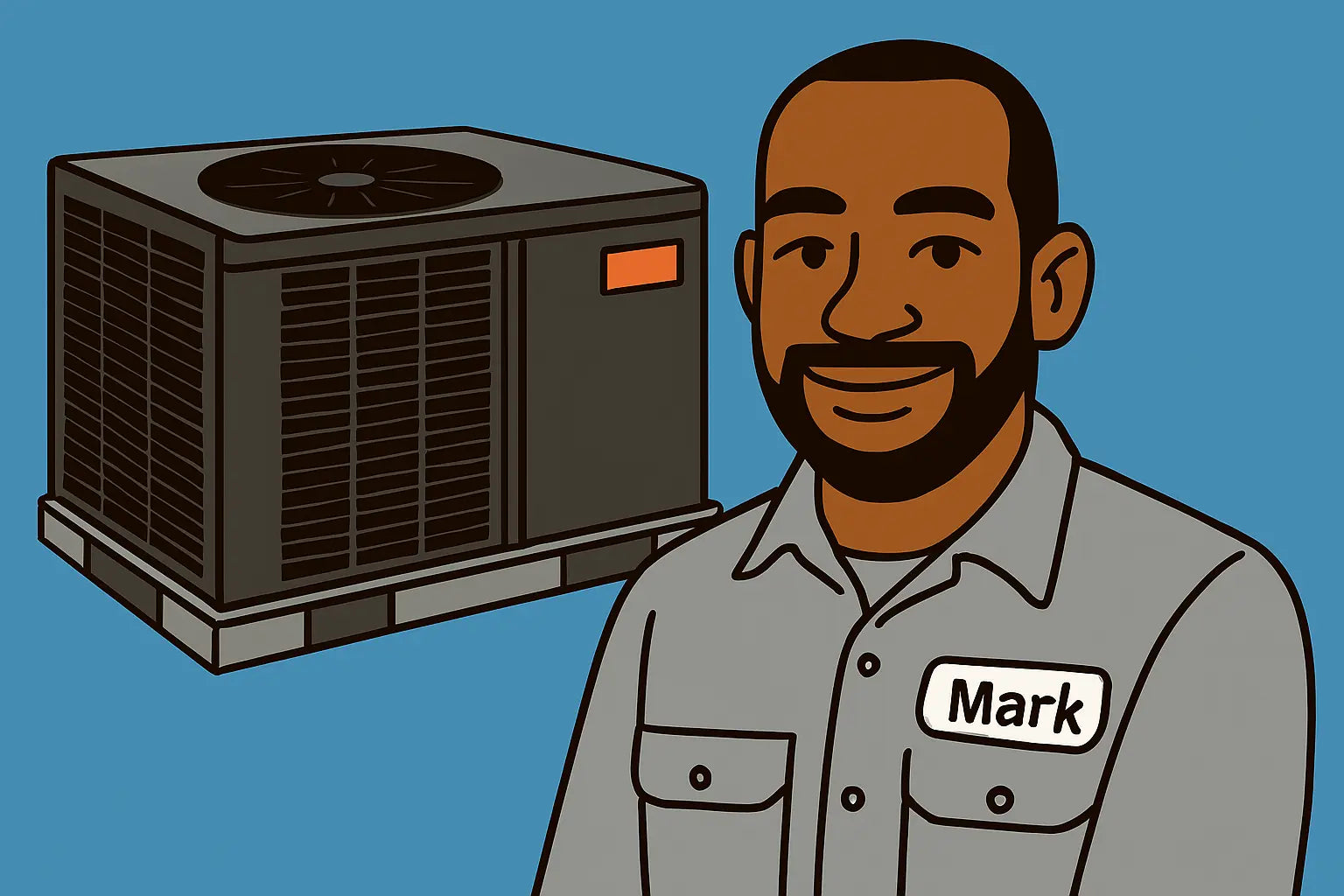Welcome Friends!
Hey, it’s Mark! So, you’ve installed your Goodman GPCH33631, but something feels off—the air isn’t cold enough, or maybe the unit’s making a weird noise. Don’t panic. Troubleshooting your 3-ton horizontal AC doesn’t have to turn into a headache marathon. I’m here to walk you through the most common problems, how to fix them, and when it’s time to call in a pro.
Understanding Your GPCH33631
Before diagnosing issues, it helps to understand your AC. The GPCH33631 is a 3-ton horizontal air conditioner operating on 208/230V single-phase 60Hz and using R-32 refrigerant. Its compact horizontal design makes it efficient for residential installations, but like all ACs, it can run into problems if airflow, refrigerant levels, or electrical connections aren’t right.
For a quick refresher on R-32 and why it matters for efficiency, check out AHRI’s guide on refrigerants.
Common Cooling Problems and How to Fix Them
1. Unit Not Cooling Properly
If your GPCH33631 isn’t keeping your home at the right temperature, the first things to check are airflow and refrigerant levels.
-
Airflow issues: Check your filters, vents, and ductwork for blockages. Dirty filters restrict airflow, reducing cooling performance. Replace or clean filters every 1-3 months. For more guidance, Energy.gov has tips on improving airflow.
-
Refrigerant issues: Low refrigerant can drastically reduce cooling. Only a certified technician should handle recharging your system. Check the lines for visible leaks.
Mark Tip: Sometimes airflow problems feel like refrigerant issues, so always check the basics first.
2. Strange Noises
Humming, rattling, or clanking can signal several issues:
-
Loose panels or screws: Vibrations can cause noise. Tighten screws and secure panels.
-
Fan issues: Debris in the fan or worn motor bearings can create unusual sounds. Inspect the fan blades and motor carefully.
If you’re unsure, HVAC.com has a detailed guide on AC noises and solutions.
3. Water Leaks or Condensation Problems
Water leaking around your unit usually points to drainage issues:
-
Clogged condensate line: Clear any obstructions and make sure the drain slopes downward.
-
Drain pan issues: Check for cracks, rust, or improper positioning of the pan.
For a step-by-step walkthrough, Service Champion has a helpful guide.
4. Electrical Problems
If your AC won’t turn on or trips the breaker:
-
Check the breaker: Make sure it hasn’t tripped.
-
Inspect wiring: Look for loose or damaged connections, ensuring all terminals are tight.
For safety tips and basic electrical troubleshooting, Energy.gov offers reliable advice.
Mark Tip: Always cut power at the breaker before inspecting electrical connections. Safety first!
5. Uneven Cooling
Some rooms may be cooler than others. This can be caused by:
-
Ductwork issues: Leaks or obstructions reduce airflow to certain areas.
-
Incorrect thermostat placement: Avoid placing thermostats in direct sunlight or near heat sources.
Balancing airflow and verifying duct integrity often resolves uneven cooling problems.
Preventive Measures to Avoid Future Issues
-
Schedule regular maintenance checks
-
Keep filters, coils, and drain lines clean
-
Inspect refrigerant lines and connections periodically
-
Monitor electrical panels for wear and tear
Regular attention keeps your GPCH33631 running efficiently and reduces the chance of unexpected breakdowns.
When to Call a Professional
Some problems, like refrigerant leaks or compressor failures, should always be handled by a licensed HVAC technician. Don’t risk voiding your warranty or damaging your system.
If you want more info about the unit specs or to reference your installation guide while troubleshooting, check out the Goodman GPCH33631 product page.
Conclusion
Troubleshooting your GPCH33631 doesn’t have to be stressful. By checking airflow, inspecting for leaks, monitoring electrical connections, and addressing noise or condensation issues early, you can keep your AC running smoothly and efficiently.
If you want more info about the unit specs or to reference your installation guide while troubleshooting, check out the Goodman GPCH33631 product page.
Need electrical safety tips for this unit? Visit my guide: Shock-Proof Your AC.
Remember, some fixes are DIY-friendly, while others require professional intervention. Keeping up with preventive maintenance is your best defense against costly repairs.
Stay cool and confident,
Mark 😎







